Is a Knife a Good Weapon for Self-Defense?
A knife can be an effective weapon for self-defense due to its portability and potential to incapacitate an attacker. When faced with a threat, individuals often seek to defend themselves using whatever means available.
A knife offers a compact and easily accessible option that can inflict serious harm on an assailant. Its versatility allows for different defensive strategies, such as striking, slashing, or even just the threat of use, which can deter an attacker.
However, it is important to note that using a knife for self-defense requires training and understanding of its proper use and potential legal ramifications. It is always advisable to prioritize personal safety by avoiding dangerous situations whenever possible and seeking professional guidance on self-defense techniques.
Understanding The Effectiveness Of Knives For Self-Defense
Knives can be effective tools for self-defense due to their ease of use and portability. Their sharp blades can inflict serious harm, providing individuals with a reliable means of protection in dangerous situations. The compact nature of knives makes them accessible and convenient for personal safety.
When faced with the need for self-defense, it’s crucial to choose the right weapon that can provide maximum protection. One such option is a knife, which has long been considered a versatile tool. In this section, we will explore the various factors to consider when choosing a self-defense weapon, examine the potential benefits of using a knife, and analyze the limitations and risks associated with it.
Factors To Consider When Choosing A Self-Defense Weapon
- Accessibility: A self-defense weapon should be easily accessible in times of emergency.
- Portability: Opting for a weapon that is portable allows for convenience and ease of carrying.
- Ease of Use: Selecting a weapon that requires minimal training ensures quick and effective deployment.
- Legal Considerations: It’s important to know the laws and regulations around carrying and using a weapon in your area.
Examining The Potential Benefits Of Using A Knife
- Versatility: Knives can serve multiple functions, both as tools and potential weapons.
- Intimidation Factor: The mere presence of a knife can often deter an attacker.
- Close-Quarters Combat: A knife can be particularly useful in close-quarters combat situations.
- Quick Strikes: With proper training, a knife can deliver swift and focused strikes.
Analyzing The Limitations And Risks Of Choosing A Knife As A Self-Defense Weapon
- Close-Range Limitation: Knives are effective only at close range, requiring the defender to be within arm’s reach of the attacker.
- Skill and Training: Effectively using a knife for self-defense necessitates proper training and practice.
- Legal Consequences: The use of a knife as a weapon can have serious legal consequences if not used within the bounds of the law.
- Increased Personal Risk: Engaging an attacker in close-quarters combat with a knife can escalate the danger and potentially put the defender at a higher risk of injury.
Considering these factors, it’s important to weigh the benefits and limitations of using a knife as a self-defense weapon. While a knife can offer certain advantages, it is essential to assess the risks involved and take into account your own personal abilities and the legal implications.
Ultimately, ensuring your safety is of utmost importance, and selecting the right self-defense weapon requires careful consideration and informed decision-making.
Knife Techniques For Effective Self-Defense
A knife can be an effective weapon for self-defense due to its versatility and potential for incapacitating an attacker quickly. With proper training and knowledge of knife techniques, it can be used to create distance and neutralize threats effectively.
When it comes to self-defense, a knife is often seen as a viable option due to its accessibility and portability. However, having a knife is not enough; you must also have the necessary skills to use it effectively. Learning basic knife handling skills and understanding essential self-defense techniques are fundamental aspects to consider.
Additionally, being aware of the legal implications of using a knife for self-defense is crucial. In this section, we will discuss the key points related to knife techniques for effective self-defense.
Learning Basic Knife Handling Skills
To utilize a knife for self-defense, it is vital to understand basic knife handling skills. Here are some important points to consider:
- Grip: Properly gripping the knife is essential for maintaining control and maximizing your defensive capabilities. The three primary knife grips are the forward grip, reverse grip, and icepick grip.
- Stance and footwork: Adopting a solid stance and utilizing proper footwork can enhance your stability and agility during a confrontation. It is crucial to position yourself in a way that allows for quick reactions and efficient movement.
- Drawing technique: Mastering the art of drawing your knife swiftly and smoothly is crucial in self-defense situations. Practicing this skill will ensure that you are prepared for any unexpected encounter.
- Target areas: Understanding the vulnerable areas on an attacker’s body is important for effective self-defense. Targeting vital areas such as the throat, eyes, groin, or abdomen can help you incapacitate your assailant efficiently.
Essential Self-Defense Techniques With A Knife
When faced with a self-defense situation, applying the right techniques can make a significant difference in your safety. Here are some essential self-defense techniques to consider when using a knife:
- Slash and disengage: A quick and powerful slash can create distance between you and your assailant, giving you an opportunity to escape. Aim for vital areas and use your body’s momentum to generate force.
- Thrusting strikes: Utilizing thrusting strikes with your knife can immobilize your attacker by causing deep and disabling wounds. Aim for areas such as the chest, neck, or abdomen to maximize the effectiveness of your strikes.
- Controlling techniques: Employing techniques such as locking or trapping the assailant’s limbs can help you gain control of the situation. This allows you to neutralize the threat without causing severe harm.
Understanding The Legal Implications Of Using A Knife For Self-Defense
While possessing a knife for self-defense may seem like an effective option, it is crucial to understand the legal implications associated with its use. Here are some points to consider:
- Laws and regulations: Familiarize yourself with local laws and regulations regarding carrying and using knives for self-defense purposes. Different jurisdictions have varying restrictions and guidelines that must be followed.
- Proportional use of force: Understanding the concept of proportional use of force is essential. Using excessive force can lead to legal consequences, so it is important to assess the situation carefully before resorting to using a knife.
- Self-defense justification: In some cases, your use of a knife for self-defense may need to be justified in court. Being able to articulate the reasons and circumstances behind your actions is crucial for legal protection.
Remember, while a knife can be a potentially valuable tool for self-defense, it should always be considered as an option of last resort. Focusing on personal safety, situational awareness, and de-escalation techniques should be prioritized whenever possible. Stay informed, continuously practice your skills, and consult legal professionals to ensure you are well-prepared and responsible should the need for self-defense ever arise.
Alternatives To Knives For Self-Defense
A knife may be considered a good weapon for self-defense, but there are alternatives worth considering. Non-lethal options like pepper spray or a personal alarm can provide effective self-defense without the risks associated with using a weapon. Additionally, self-defense classes can equip individuals with necessary skills for protecting themselves in dangerous situations.
Exploring Non-Lethal Self-Defense Weapons
Self-defense is an important aspect of personal safety, but it’s crucial to consider the effectiveness and consequences of the tools we choose. While knives are commonly associated with self-defense, there are alternative options that can offer protection without the potential lethality.
In this section, we will explore non-lethal self-defense weapons and delve into their pros and cons.
Understanding the Pros and Cons of Non-Knife Options:
- Pepper spray: A popular choice for self-defense due to its effectiveness and ease of use. It temporarily incapacitates the attacker by causing irritation, itching, and temporary blindness. However, its effectiveness can vary depending on factors such as wind conditions and the attacker’s resilience.
- Stun guns: These devices deliver an electric shock that immobilizes the attacker temporarily. They can be effective in disabling the assailant and providing an opportunity to escape. However, they require close proximity to the attacker and may not work effectively on individuals under the influence of certain substances.
- Tasers: Similar to stun guns, tasers incapacitate the attacker by delivering electrical shocks. Unlike stun guns, they can be deployed from a distance using barbed projectiles. However, they are more expensive and have limited ammunition capacity.
- Personal alarms: Emitting a loud and attention-grabbing noise, personal alarms can startle and deter potential attackers. They are affordable, easy to carry, and don’t require physical contact. However, their effectiveness relies on the presence of people who will respond to the alarm.
Evaluating the Efficacy of Non-Knife Self-Defense Tools:
- Training and practice: Regardless of the self-defense tool used, proper training and practice are essential. Familiarizing oneself with the operation and limitations of the chosen tool can significantly enhance its effectiveness and increase personal safety.
- Legal considerations: Before acquiring any self-defense tool, it’s important to understand the laws and regulations surrounding their possession and use. Checking local regulations and seeking legal advice will ensure compliance and prevent potential legal consequences.
- Situational effectiveness: Every self-defense situation is unique, and the effectiveness of non-knife options can vary depending on factors such as size, strength, and skill of the attacker. Considering one’s personal physical capabilities and the specific threats one may encounter is crucial in selecting the most appropriate self-defense tool.
Remember, the ultimate goal of self-defense is to protect oneself from harm while minimizing any potential risks and consequences. Exploring non-lethal self-defense weapons provides a range of options that can empower individuals to defend themselves effectively, providing peace of mind in potentially dangerous situations.
Knife Laws And Self-Defense
A knife can be an effective weapon for self-defense due to its compactness and ease of concealment. It provides a person with a means to protect themselves in close quarters situations. However, it is essential to understand and adhere to the specific knife laws in your jurisdiction to ensure you are using it within legal boundaries.
Familiarizing Yourself With Local Knife Laws And Regulations
Before considering a knife as a self-defense weapon, it is crucial to understand the legal landscape surrounding knives in your area. Different jurisdictions have specific laws and regulations that dictate the possession, carry, and use of knives. Familiarizing yourself with these local knife laws can help you make informed decisions and avoid unnecessary legal trouble.
Here are some key points to consider:
- Research: Start by conducting thorough research on the knife laws in your city, state, or country. Look for official government sources or consult legal professionals to ensure you have accurate and up-to-date information.
- Blade Length Restrictions: Many jurisdictions have limitations on the length of blades that can be legally carried or concealed. Blades exceeding certain lengths may be classified as weapons and subject to legal restrictions.
- Restricted Knife Types: Some jurisdictions prohibit the possession or carry of specific types of knives, such as switchblades, butterfly knives, or other spring-assisted knives. It is essential to know if your area has any such restrictions on certain knife designs.
- Concealed Carry Laws: In some places, carrying a knife in a concealed manner may require a permit or license. Be aware of the laws governing concealed carry and ensure you comply with the necessary requirements.
- Restricted Locations: Certain areas, such as schools, government buildings, airports, and courtrooms, often have strict restrictions on carrying knives. Knowing these restricted locations can help you avoid unknowingly violating the law.
Knowing The Legal Consequences Of Carrying And Using A Knife
While a knife can be a useful tool in various situations, it is essential to understand the legal consequences associated with carrying and using one for self-defense. Here are some key considerations:
- Criminal Offense: Carrying a knife unlawfully or using it in an illegal manner can lead to criminal charges, fines, and even imprisonment. Understanding the potential legal ramifications can help you make responsible decisions.
- Intent and Perception: In self-defense situations, your intent and the perception of others can significantly impact how the law views your actions. It is crucial to know the legal requirements for justifiable use of force and self-defense in your jurisdiction.
- Proportional Use of Force: Using a knife as a self-defense weapon is subject to the principle of proportional force. It means that the amount of force used must be reasonable and proportionate to the threat faced. Understanding this principle can help you make informed decisions during potential confrontations.
Understanding The Right To Self-Defense And Its Limitations
While the right to self-defense is recognized in many jurisdictions, it is essential to understand its limitations. Here are some important points to consider:
- Imminent Threat: Self-defense generally permits the use of force when there is an imminent threat of harm. However, the specific criteria for what constitutes an imminent threat can vary between jurisdictions.
- Reasonable Belief: The use of force in self-defense often requires a reasonable belief that you or others are in immediate danger. It is crucial to assess the circumstances objectively and determine if your perceived threat meets the legal standard for self-defense.
- Duty to Retreat: Some jurisdictions impose a duty to retreat, requiring individuals to exhaust all reasonable means of avoiding or escaping the threat before resorting to force. Understanding your jurisdiction’s stance on this can help you make appropriate decisions.
- Reporting Incidents: In some cases, even when acting in self-defense, it is necessary to report the incident to law enforcement authorities. Knowing the legal requirements regarding reporting can help you navigate the aftermath of a self-defense situation.
Remember, this information serves as a general guide, and it is crucial to consult local laws and seek legal advice specific to your jurisdiction. Understanding the intricacies of knife laws and the legal implications of self-defense can help you make informed choices and stay within the boundaries of the law.
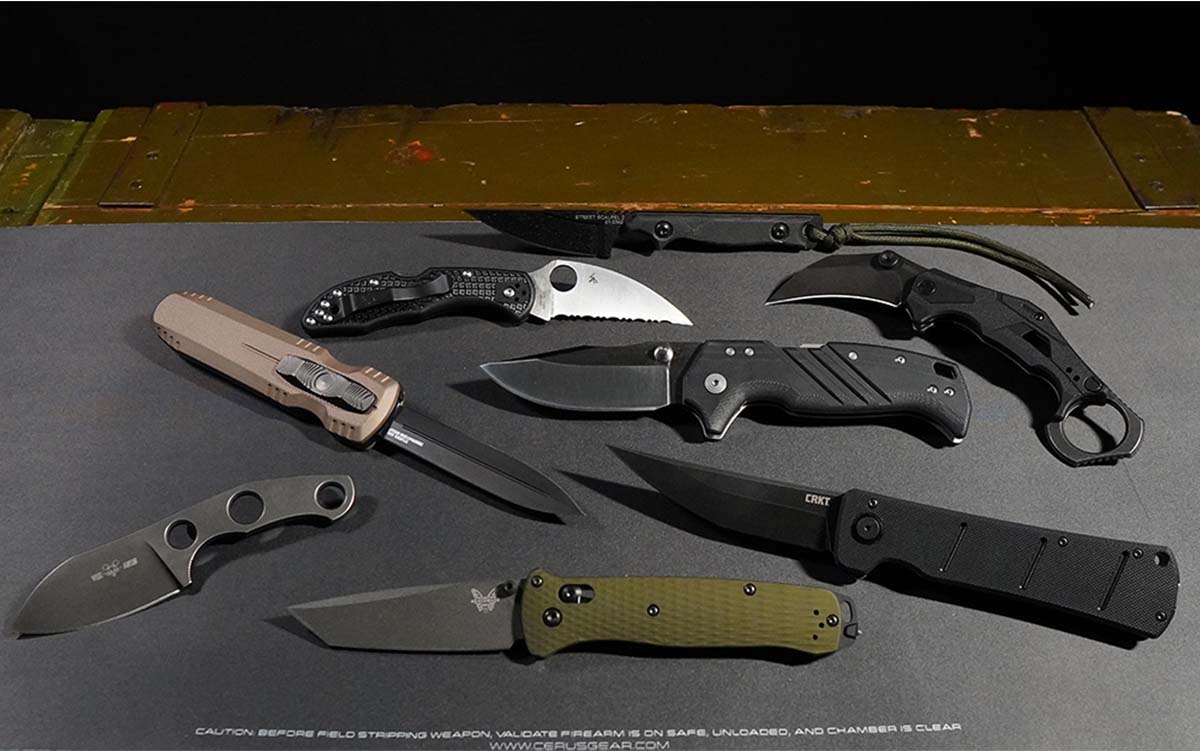
Credit: www.outdoorlife.com
Frequently Asked Questions For Is A Knife A Good Weapon For Self-Defense?
Is It Ok To Have A Knife For Self-Defense?
Yes, it is generally acceptable to have a knife for self-defense.
Are Knives Better Than Guns For Self-Defense?
Knives and guns both have advantages for self-defense, but it depends on factors like skill level and situation.
Where Is The Best Place To Carry A Knife For Self-Defense?
The best place to carry a knife for self-defense is in a secure and easily accessible location on your person.
What Knives Are Best For Self Defence?
The best knives for self-defense are those that are compact, easy to carry, and have a secure grip.
Conclusion
When considering the use of a knife for self-defense, it is crucial to weigh the potential benefits against the inherent risks and legal implications. While a knife can provide a sense of security and potentially intimidate an attacker, it is not a foolproof solution.
The close proximity required for knife fights can escalate the danger and increase the likelihood of injury or even death. Moreover, the legal consequences of using a knife in self-defense can vary greatly depending on the jurisdiction. It is important to be aware of local laws and regulations before making any decisions regarding self-defense weaponry.
Ultimately, personal safety should be prioritized through non-violent means such as situational awareness, self-defense classes, and utilizing available resources like pepper sprays or personal alarms. Responsibly exploring all options and seeking professional guidance is key to ensuring one’s safety in any self-defense situation.

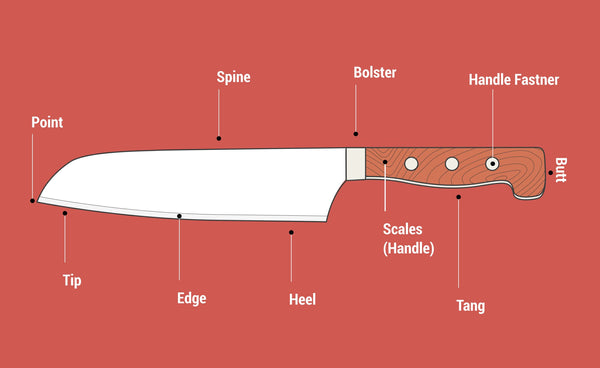
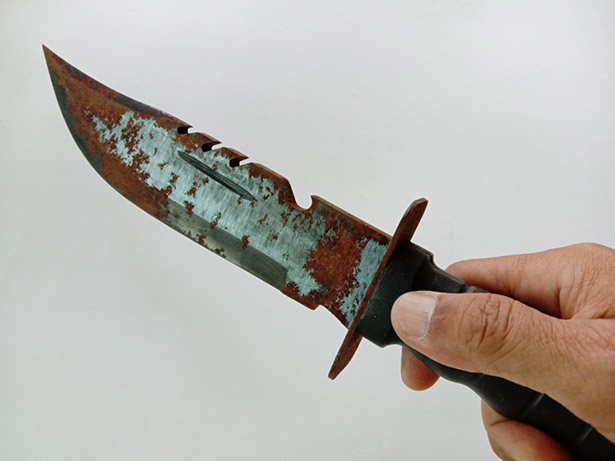
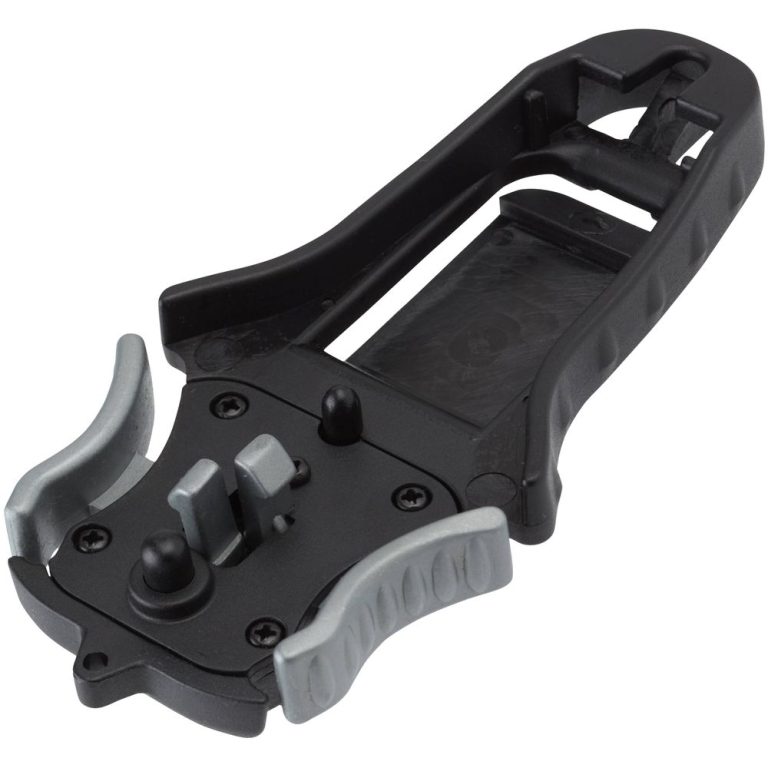
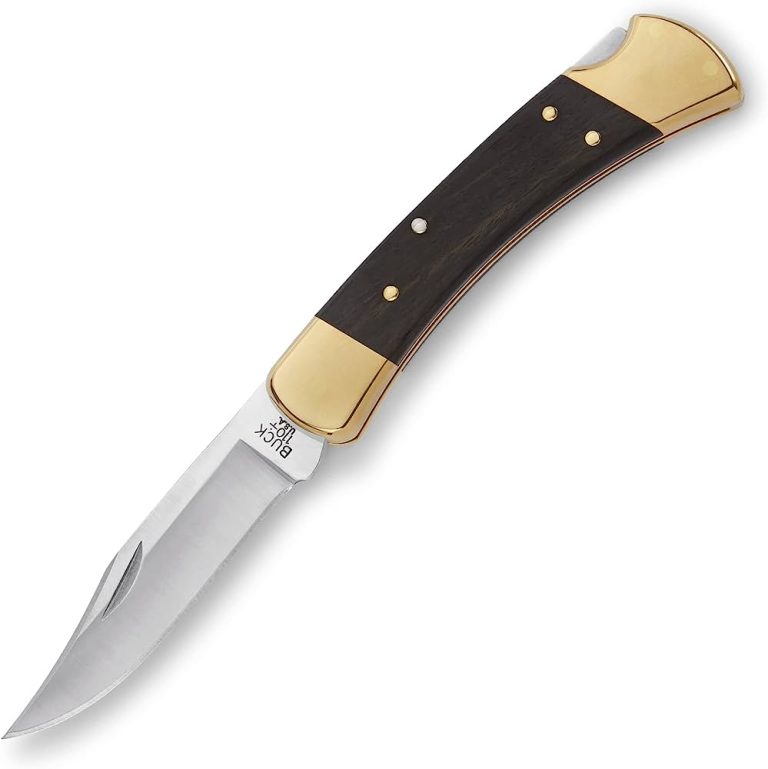

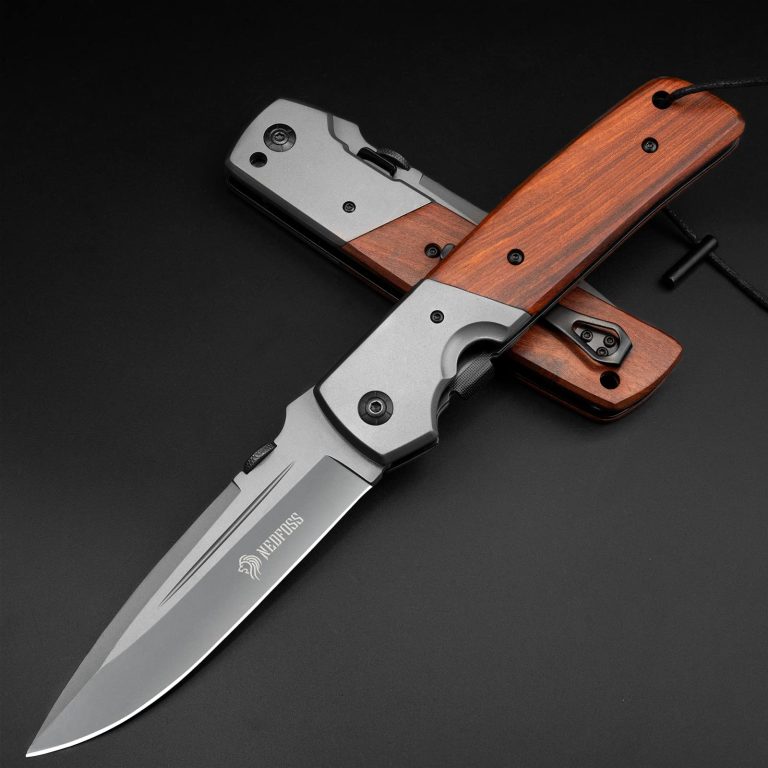
When I originally left a comment I appear to have clicked the -Notify me when new
comments are added- checkbox and from now on every time
a comment is added I recieve four emails with the exact same comment.
Perhaps there is a means you can remove me from that service?
Cheers!
ok will do
Sorry